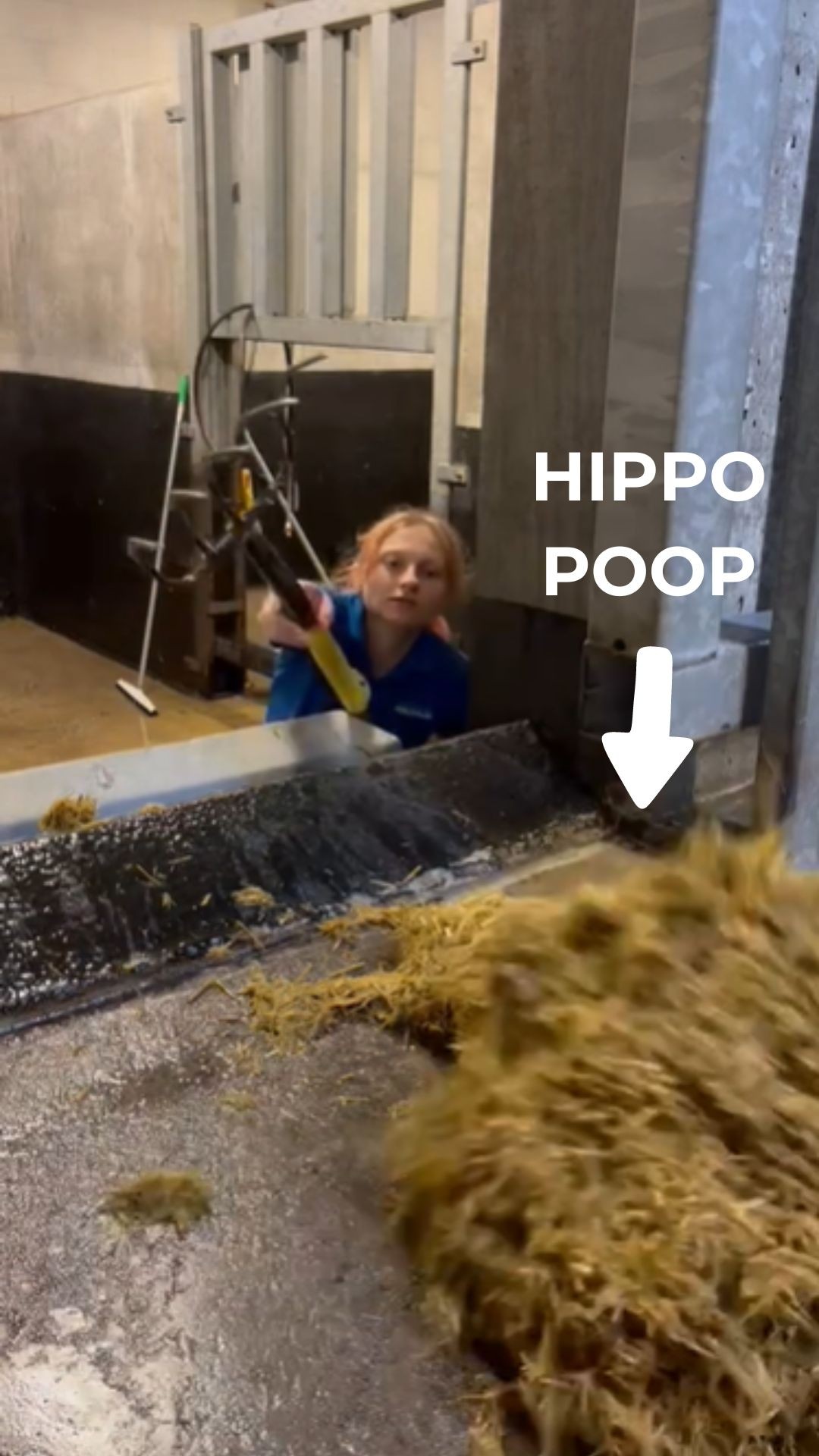- Daily Hippo Care: What It Entails
- Team Effort in Hippo Management
- Biologist Raelyn’s Role and Expertise
- Environmental Impact and Benefits of Proper Hippo Care
- Conservation and Education Initiatives
Taking care of hippos is a demanding and intricate task that goes beyond mere entertainment. It requires a robust daily routine, an adept team of biologists, and a deep understanding of these magnificent creatures. Here, we delve into the routines, challenges, and benefits of managing hippos in a zoo setting, guided by the expertise of Biologist Raelyn and her dedicated team.
Daily Hippo Care: What It Entails
Daily care for hippos is a multifaceted process. It involves feeding, health checks, habitat maintenance, and more. Hippos are herbivores, and their diet primarily consists of grasses. In captivity, they are often provided with hays, vegetables, and specially formulated pellets to meet their nutritional needs. Biologists must balance the diet to prevent obesity and ensure the animals remain healthy.
Health checks are another critical aspect. Routine veterinary assessments include examining skin for infections or injuries, monitoring weight, and conducting dental check-ups. Since hippos can be aggressive and have a robust build, these health assessments often require anesthesia or special training for safe handling.
Habitat maintenance is perhaps the most labor-intensive task. Hippos spend a substantial amount of time in water, necessitating frequent cleaning of pools to prevent algae buildup and bacterial growth. Solid waste, primarily deposited in the water, needs regular removal to maintain a healthy living environment.
Team Effort in Hippo Management
Caring for hippos isn’t a solo endeavor. It demands a coordinated team effort. The team consists of biologists, veterinarians, nutritionists, and maintenance staff, each playing a pivotal role. Collaboration is key to tackling the various challenges that arise in hippo management.
For instance, the feeding schedule involves cooperation between nutritionists and biologists to monitor consumption and adjust diets. Veterinary teams often work closely with biologists during health assessments to understand behavior patterns and identify potential health issues early on. Maintenance staff ensures that the habitat remains clean and safe, directly impacting the hippos’ well-being.
Biologist Raelyn’s Role and Expertise
Biologist Raelyn serves as a cornerstone of the hippo care team, bringing extensive knowledge and hands-on expertise to the job. Her daily tasks include overseeing feeding routines, conducting health checks, and ensuring habitat cleanliness. Raelyn’s job also involves training and educating staff on hippo behavior and care nuances.
Raelyn’s deep understanding of hippo biology and behavior is crucial. Hippos are known for being territorial and can exhibit aggressive behavior if they feel threatened. Raelyn’s experience enables her to anticipate potential issues and address them proactively. She also plays a vital role in developing enrichment activities that stimulate the hippos mentally and physically, ensuring a balanced and fulfilling environment.
Environmental Impact and Benefits of Proper Hippo Care
The environmental impact of proper hippo care extends beyond the confines of the zoo. Maintaining a clean habitat helps prevent the spread of pathogens, which can affect not only the hippos but also other animals and humans. The water bodies used for hippo habitats require careful management to avoid waterborne diseases and maintain ecological balance.
Moreover, successful hippo care programs can contribute to broader conservation initiatives. Zoos often participate in breeding programs that support the genetic diversity of captive populations, which can be crucial for the sustainability of wild populations. Proper care and enrichment lead to healthier, more resilient animals that can play a role in these conservation efforts.
Conservation and Education Initiatives
Conservation is at the heart of zoo management, and hippos are no exception. Zoos worldwide collaborate in breeding programs to preserve genetic diversity and combat the threats of habitat loss and poaching faced by wild populations. Educational initiatives are equally crucial. By educating the public about hippos, zoos foster a greater appreciation and understanding of these creatures, driving support for conservation efforts.
Raelyn and her team often conduct educational tours and workshops, sharing insights into hippo care and behavior. These activities help raise awareness about the importance of conservation and the challenges of maintaining hippo populations. Education becomes a powerful tool in fostering a culture of respect and responsibility toward wildlife.
In covering these facets, it’s clear that caring for hippos isn’t just fun and games. It’s a complex, collaborative effort that demands dedication, expertise, and a deep commitment to conservation. Through the work of dedicated professionals like Biologist Raelyn and her team, we gain a better understanding of these fantastic creatures and the importance of preserving their environments.
*****
Source Description
Taking care of hippos isn’t just fun and games! 🦛💩
Biologist Raelyn gave us a behind-the-scenes look at the daily cleanup routine for our hippos. It’s a big job, but Raelyn isn’t doing it alone—she has an incredible team of biologists working alongside her every day!

